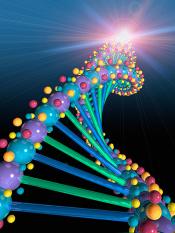World’s largest body of human geneticists apologizes for eugenics role
By Sydney Trent,
The Washington Post
| 01. 24. 2023
The world’s largest and best-known group of human geneticists apologized Tuesday for the role some of its early leaders played in the American eugenics movement, as well as the harmful ways the field has been used to fuel racism and discrimination. The 8,000-member American Society of Human Genetics “seeks to reckon with, and sincerely apologizes for, its involvement in and silence on the misuse of human genetics research to justify and contribute to injustice in all forms,” the 75-year-old organization’s board of directors said in a statement. The dramatic gesture comes two decades after the conclusion of the Human Genome Project, which revealed that humans worldwide share 99.9 percent of their genetic material. As a result, geneticists have reached a global consensus that “race” is purely a social construct — albeit one with real-world consequences — with no basis in biology. The apology also comes amid a rise in hate crimes and mass killings inspired by white supremacy and baseless claims about the country’s demographic makeup.
The society’s decision to apologize follows an 18-month investigation prompted by the 2020 protests...
Related Articles
By Arthur Lazarus, MedPage Today | 01.23.2026
A growing body of contemporary research and reporting exposes how old ideas can find new life when repurposed within modern systems of medicine, technology, and public policy. Over the last decade, several trends have converged:
- The rise of polygenic scoring...
By Stephanie Pappas, LiveScience | 01.15.2026
Genetic variants believed to cause blindness in nearly everyone who carries them actually lead to vision loss less than 30% of the time, new research finds.
The study challenges the concept of Mendelian diseases, or diseases and disorders attributed to...
By David Cox, Wired | 01.05.2026
As he addressed an audience of virologists from China, Australia, and Singapore at October’s Pandemic Research Alliance Symposium, Wei Zhao introduced an eye-catching idea.
The gene-editing technology Crispr is best known for delivering groundbreaking new therapies for rare diseases, tweaking...
By Josie Ensor, The Times | 12.09.2025
A fertility start-up that promises to screen embryos to give would-be parents their “best baby” has come under fire for a “misuse of science”.
Nucleus Genomics describes its mission as “IVF for genetic optimisation”, offering advanced embryo testing that allows...




